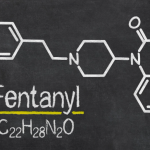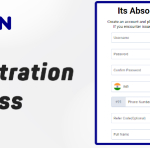Keys to Supporting a Loved One Through Addiction Intervention
Keys to Supporting a Loved One Through Addiction Intervention.
Addiction is an insidious and pervasive disease that often requires professional help to overcome. One of the most effective ways to get a loved one suffering from addiction into treatment is through an intervention. An intervention can be a powerful tool if it’s done correctly, but if not conducted properly, it can further alienate the person in need of help. Here are some strategies for conducting a successful addiction intervention.
An intervention should be conducted by a trained professional such as a therapist, social worker, or psychologist who is familiar with addiction. A qualified professional can help ensure that everyone involved in the intervention is on the same page and that the intervention is conducted in a way that’s respectful and non-judgmental. The professional will provide guidance and assistance throughout the process. drug and alcohol detox
The goal of an intervention is to help the person suffering from addiction understand the severity of their problem, realize how it has negatively impacted their life, and commit to getting help. It’s important to remember that an intervention should be a loving and supportive experience, not an attack. During the intervention, family members and friends will share stories of how they have been affected by the person’s addiction and why it’s so important for them to get help.
The person will be given an opportunity to make a commitment to getting help, or the family can set boundaries and consequences if they don’t. It is also important for everyone involved in the intervention to be prepared with resources that can provide assistance once the person agrees to get treatment. With support, guidance, and hard work, interventions can help people make the life-saving decision to enter recovery.
In addition to interventions, there are other ways that family and friends can support a loved one in their recovery journey. They can encourage them to attend therapy sessions and 12-step meetings as well as provide emotional support throughout treatment. It’s important for families and friends of those in recovery to be aware of the signs and symptoms of relapse so they can help their loved one if needed. Recovery is a long-term process and having a strong support system can make a huge difference in the chances of success. With understanding, patience, and love, families and friends can play an important role in helping to break the cycle of addiction.
An intervention can be a powerful way to help a loved one suffering from addiction get into treatment, but it’s important to remember that the process can be emotionally draining and difficult for everyone involved. It’s important to enlist the help of a professional so that the intervention will be conducted in an effective and respectful way, and that all parties remain safe throughout the process. With professional guidance and support, an intervention can be a powerful tool in getting someone into treatment and on the road to recovery.
Pick the Right People for the Intervention Team
The people you select to be present at the intervention should have two things in common—they should care about the person suffering from addiction, and they should have knowledge of the problem and its effects on the individual’s life. This could include family members, close friends, or even co-workers who are aware of the signs of addiction and its consequences. It’s important to choose only those people who will ultimately be supportive and constructive during an intervention; those who are likely to judge or make accusations should not be included.
Do Your Homework
Before planning an intervention, it’s important to do research on both addiction and interventions themselves so that everyone involved knows what they can expect before and after the event takes place. Be sure to research resources such as treatment centers and support groups that are available to provide help for your loved one after they agree to enter treatment. It’s also important to understand any legal issues that may arise as a result of their addiction so you know how best to handle them if needed.
Once you have a plan in place, it’s time to talk with your loved one and let them know that you are there for them and want to help. Be sure to remain calm, understanding, and nonjudgmental throughout the entire process.
Explain that you are offering treatment as an option and express your commitment to helping them get help and offering emotional support throughout the process. It’s important to focus on your loved one’s individual needs and provide them with as much information and resources as possible. Showing that you believe in their recovery is key — it can make a huge difference when they are starting to consider entering treatment.
Focus on Solutions
When intervening with someone suffering from addiction, it’s important not only to discuss the problems associated with their substance abuse but also potential solutions for getting better. During an intervention, it’s helpful to focus on concrete solutions such as specific treatments or therapies that could help your loved one overcome their addiction rather than dwelling on negative emotions like guilt or shame which can lead them feeling even worse about themselves and possibly less willing to seek help. You might discuss options like detoxification programs, outpatient programs, residential rehab facilities, 12-Step meetings, or other types of therapy based on your research prior to the meeting.
An effective intervention requires careful planning and preparation before seeking professional help for someone struggling with addiction. Involving family members and close friends who are invested in seeing their loved one recover is essential in order for an interventionist to create a successful plan of action moving forward towards recovery; this team must also educate themselves about substance abuse prior to meeting with their friend or family member so they can provide as much information as possible about potential solutions during the actual intervention process itself . With these strategies in mind, you can increase your chances of conducting a successful addiction intervention for your loved one so they can get back on track towards leading healthy lives free from substance abuse.







